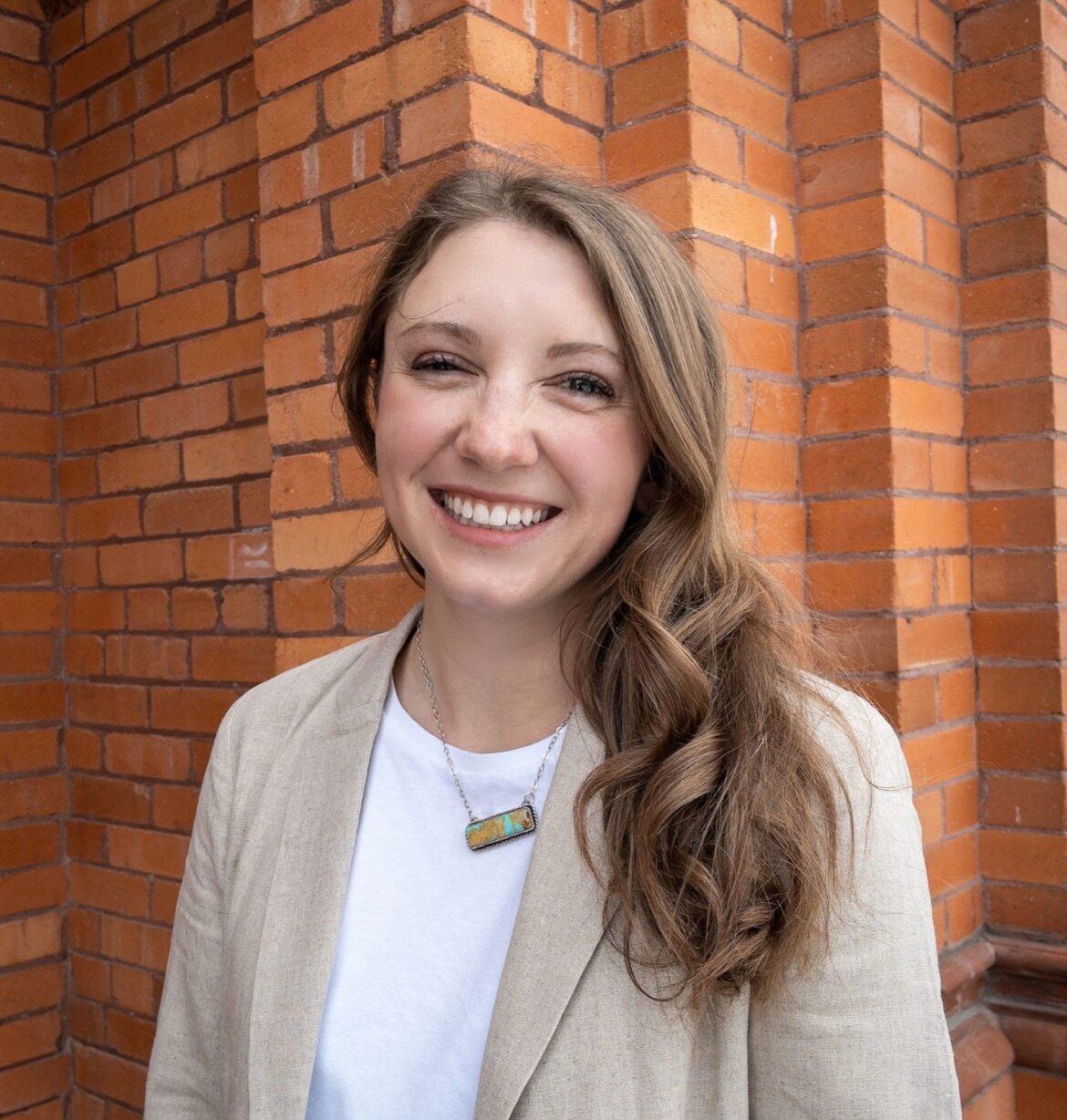A soon-to-be two-time graduate of Montana State University is participating in a selective academic and professional development program for young leaders in agriculture through the Farm Foundation.
Caroline Roeder Helle is one of five graduate students nationwide to be named to the foundation’s Agricultural Scholars program for 2025. Over a year, selected students participate in networking and professional meetings through the Farm Foundation and U.S. Department of Agriculture.
“This is great opportunity for Caroline,” said Eric Belasco, head of the College of Agriculture’s Department of Agricultural Economics and Economics, in which Helle received her undergraduate degree and is pursuing her master’s degree. “It will help prepare her to be an outstanding leader in agriculture and allow her to continue being a wonderful ambassador for Montana State University.”
Originally from Choteau, Helle was the co-valedictorian of her high school class and remained a highly involved student during her undergraduate studies after arriving at MSU in 2019. A third-generation MSU student, she followed her step-grandfather, mother, father and older brother to Bozeman.
She received MSU’s presidential scholarship, the university’s most selective award, and was involved with the College of Agriculture’s range management club and Sigma Alpha sorority. She helped to establish MSU’s chapter of the Collegiate Woolgrowers group and served as a College of Agriculture senator in the Associated Students of MSU.
In 2023, Helle was honored alongside her undergraduate adviser Joe Atwood at the 41st annual Founders Day Awards for Student Excellence, in which students are nominated by faculty for outstanding leadership and community service. After graduating that spring with a degree in agricultural business, she began her graduate studies in applied economics.
“I wanted to pursue a graduate program that would allow me to engage with policy but also build a technical set of skills that I could market,” said Helle of her decision to continue her studies at MSU. “Econ and policy go hand in hand, and MSU has a great economics graduate program. The coursework was very challenging, but I’ve had a great cohort, and that was one of the things that really made a difference, being able to collaborate with them.”
Students in the applied economics graduate program complete coursework during their first year before spending the second on a thesis project. Helle selected a topic that she felt would blend her agricultural roots with relevant issues in agriculture. Her research has explored livestock grazing on U.S. Forest Service land and analyzed the impacts of that grazing on wildfire risk.
In addition to Atwood’s mentorship during her undergraduate career, she said the support and expertise of her graduate committee co-chairs, professor emeritus Randy Rucker and assistant professor Nicole Karwowski, have been invaluable in giving her confidence, building her skills and pushing her to conduct high-level research.
“She’s just awesome,” Helle said of Karwowski. “It’s so wonderful to have another young woman who’s a few steps ahead of me to mentor me both on the technical side of things with my economics education, and then also on the interpersonal side of things. I’ve had some really great mentors and advisers in the College of Ag.”
As part of their experience with the Farm Foundation, agricultural scholars are also paired with and mentored by researchers from the USDA’s Economic Research Service, who provide guidance and facilitate connections with professionals and scientists whose expertise matches the students’ interests. Helle’s tenure in the program will continue through December, though it will overlap with her beginning a job with an economic consulting firm this summer.
As she prepares for her final thesis defense next month, she said the Agricultural Scholars program and her years at MSU have helped widen her perspective on the many facets of the industry.
“It’s really interesting being a kid from rural Montana who grew up with cows, wheat and my personal background, which is sheep, getting a look all of the other commodities that are produced in the United States,” she said. “It’s really cool to learn about and see the diversity of agriculture.”
###
MSU News Service


